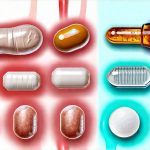Bladder irritation is an incredibly common issue affecting millions worldwide, ranging from mild discomfort to debilitating pain impacting daily life. It’s often characterized by frequent urination, urgency (a sudden, compelling need to go), burning sensations during urination, and even lower abdominal pressure. While many seek medical intervention – which is absolutely crucial for diagnosis and ruling out serious conditions – dietary adjustments can play a significant role in managing symptoms and improving quality of life. The link between food and bladder health isn’t always immediately obvious; what seems harmless to one person might trigger irritation in another, making it a rather individualised journey. Understanding how certain foods interact with the bladder and identifying potential triggers is often the first step toward relief.
This isn’t about restrictive dieting or eliminating entire food groups. It’s more about mindful choices and incorporating foods known for their soothing properties while minimizing those that are common irritants. Many people find that even small changes in diet can make a substantial difference, reducing the frequency of flare-ups and lessening the severity of symptoms. This article will explore specific foods which are often associated with easing bladder irritation and offer practical guidance on how to integrate them into your everyday eating habits. It’s important to remember this information is not intended as medical advice; always consult with a healthcare professional for personalized recommendations tailored to your individual needs and health status.
Foods That Soothe & Hydrate
Hydration is paramount when dealing with bladder irritation. A well-hydrated bladder functions more efficiently, diluting urine and reducing its potential to cause discomfort. However, what you drink matters just as much as how much. While water should be the primary source of fluids, incorporating herbal teas known for their calming properties can offer additional benefits. Chamomile tea, for example, is widely recognized for its relaxing effects and may help reduce bladder spasms. Similarly, ginger tea has anti-inflammatory properties which could ease irritation. Avoid caffeinated beverages, alcohol, and carbonated drinks as these are notorious bladder irritants (more on that later).
Beyond adequate fluid intake, certain foods naturally possess qualities that support bladder health. Blueberries are rich in antioxidants called anthocyanins, which have been linked to reducing inflammation throughout the body, including the urinary tract. Sweet potatoes provide Vitamin A and fiber, contributing to overall gut health – a strong connection exists between gut microbiome balance and bladder function. Foods containing magnesium, such as bananas and dark leafy greens, can also be beneficial, as magnesium helps relax muscles, potentially mitigating bladder spasms. A diet rich in anti-inflammatory foods is often the cornerstone of managing chronic bladder issues.
Finally, incorporating probiotics into your diet – through fermented foods like yogurt (unsweetened) or kefir – promotes a healthy gut microbiome, which can indirectly support bladder health. A balanced gut flora helps regulate immune function and reduce inflammation throughout the body. Remember to introduce these changes gradually, paying attention to how your body responds. Keeping a food diary can be immensely helpful in identifying individual triggers and understanding what works best for you.
Foods to Limit or Avoid
Identifying and eliminating trigger foods is often crucial for managing bladder irritation. While everyone’s sensitivity varies, some foods are commonly associated with worsening symptoms. Citrus fruits, including oranges, grapefruit, and lemons, contain high levels of citric acid which can irritate the bladder lining. Similarly, tomatoes and tomato-based products (sauces, juices) are acidic and frequently reported as triggers. Spicy foods, containing capsaicin, can also cause irritation due to their inflammatory nature.
Artificial sweeteners are another common culprit. Many individuals find that even small amounts of artificial sweeteners like aspartame or sucralose exacerbate bladder symptoms. This is often linked to how these substances affect the gut microbiome and overall inflammation levels. Be mindful of hidden sources of artificial sweeteners in processed foods and beverages. Caffeine, as mentioned previously, is a powerful diuretic, increasing urine production and potentially irritating the bladder. Alcohol has similar effects, alongside being dehydrating which concentrates urine and increases irritation.
Finally, consider food sensitivities or allergies. While not directly related to the bladder itself, undiagnosed food intolerances can contribute to systemic inflammation, indirectly impacting bladder health. If you suspect a food sensitivity, consider an elimination diet – under the guidance of a healthcare professional – to identify potential triggers. This involves removing suspected foods for a period and then gradually reintroducing them while monitoring for symptoms.
Understanding Food-Bladder Connection & Practical Tips
The connection between food and bladder irritation isn’t always straightforward, but several mechanisms are thought to be involved. Acidic foods can directly irritate the bladder lining, causing inflammation and discomfort. Foods high in oxalates – found in spinach, rhubarb, and chocolate – may contribute to crystal formation in the urine, potentially leading to irritation. Furthermore, as previously discussed, gut health plays a vital role; an imbalanced microbiome can increase inflammation throughout the body, including the urinary tract.
Here are some practical tips for managing bladder irritation through dietary changes:
- Keep a Food Diary: Track everything you eat and drink, noting any correlation between specific foods and your symptoms.
- Hydrate Strategically: Aim for 6-8 glasses of water per day, but avoid drinking large amounts right before bedtime.
- Eat Smaller, More Frequent Meals: This can help prevent overfilling the bladder and reduce pressure.
- Avoid Processed Foods: These often contain hidden irritants like artificial sweeteners and excessive sodium.
- Prioritize Anti-Inflammatory Foods: Incorporate blueberries, sweet potatoes, leafy greens, and fatty fish into your diet.
The Role of Fiber & Gut Health
Fiber plays a surprisingly important role in bladder health. Adequate fiber intake promotes regular bowel movements, preventing constipation which can put pressure on the bladder and exacerbate symptoms. Soluble fiber, found in oats, apples, and beans, absorbs water in the gut, softening stool and making it easier to pass. Insoluble fiber, present in whole grains and vegetables, adds bulk to stool, further aiding regularity. A healthy digestive system is crucial for overall well-being, including bladder health.
The link between gut health and bladder function is increasingly recognized. The gut microbiome – the trillions of bacteria residing in our intestines – influences immune function, inflammation levels, and even neurotransmitter production. An imbalanced gut microbiome (dysbiosis) can lead to increased intestinal permeability (“leaky gut”), allowing toxins and inflammatory substances to enter the bloodstream and potentially irritate the bladder. Probiotic-rich foods like yogurt and kefir help restore a healthy balance of gut bacteria.
Furthermore, certain dietary patterns, such as the Mediterranean diet – rich in fruits, vegetables, whole grains, and healthy fats – have been shown to promote a diverse and balanced gut microbiome, supporting overall health and potentially reducing bladder irritation. Focusing on whole, unprocessed foods and limiting sugar and refined carbohydrates can also contribute to a healthier gut environment. Remember, consistency is key; dietary changes are most effective when adopted as long-term lifestyle habits rather than temporary fixes.





















